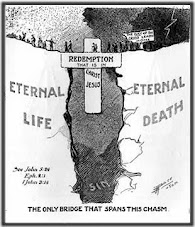To The reader:
Today is the eve of Christmas. True Biblical Christianity celebrates and remembers the coming of the promised Messiah, the Christ, the Saviour of the world!
Luke 2:11 (King James Version)
11For unto you is born this day in the city of David a Saviour, which is Christ the Lord.
His name is JESUS, meaning Jehovah/God the Saviour.
Matthew 1:21
21And she shall bring forth a son, and thou shalt call his name JESUS: for he shall save his people from their sins.
His other name is Emmanuel
Matthew 1:23
23Behold, a virgin shall be with child, and shall bring forth a son, and they shall call his name Emmanuel, which being interpreted is, God with us.
God Almighty the Creator of the heavens and the earth and every living thing came to be “God with us”, that is, to those who would submit and surrender to Him alone as Saviour and LORD.
The God of Holy Scriptures as revealed in the person of the Creator (John 1:1-5) the LORD Jesus Christ, came that first Christmas day, to be the Saviour of the world. He was condemned to die on The Cross of Calvary for the sins of the world as full payment for the just demands of the Law of God (Romans 6:23) for sin has wages EVEN Hell itself, the Lake of Fire (Rev. 20:10; 21:8).
He shed His precious BLOOD (Hebrews 9:22) which alone can atone, pay for the sins of men, no not the good works or any so-called righteous or good deeds
Isaiah 64:6
6But we are all as an unclean thing, and all our righteousnesses are as filthy rags; and we all do fade as a leaf; and our iniquities, like the wind, have taken us away.
(The above filthy rags were the cloth used by women during their monthly menstrual cycle which nowadays are known as “sanitary napkins”. The best that man can do is unacceptable before a holy, just, and righteous God).
of sinful depraved men (Romans 3:9-10; 23; Ephesians 2:8-10), not even the faithful and sincere observation of any and all religious observances taught and demanded by any and all religious sect (notably that of Roman Catholicism) can avail.
Titus 3:5
5Not by works of righteousness which we have done, but according to his (Jesus) mercy he saved us, by the washing of regeneration, and renewing of the Holy Ghost;
He died, was buried but rose again from the dead
1 Corinthians 15
1Moreover, brethren, I declare unto you the gospel which I preached unto you, which also ye have received, and wherein ye stand;
2By which also ye are saved, if ye keep in memory what I preached unto you, unless ye have believed in vain.
3For I delivered unto you first of all that which I also received, how that Christ died for our sins according to the scriptures;
4And that he was buried, and that he rose again the third day according to the scriptures:
This alone is the basis whereby any sinful (deceitful
Acts 4:12
12Neither is there salvation in any other: for there is none other name (Only Jesus) under heaven given among men, whereby we must be saved.
Acts 16:30-31
30And brought them out, and said, Sirs, what must I do to be saved?
31And they said, Believe on the Lord Jesus Christ, and thou shalt be saved, and thy house.
Trusts and Believe on the LORD Jesus Christ Alone! (John 3:16-18).
The person who will Authentically, Genuinely and Truly Believe on the LORD Jesus will and must become a Disciple and Follower of Christ and will evidenced a truly changed and transformed life (2 Corinthians 5:17), the fruit of genuine Biblical Repentance. Nothing less than these will suffice!
If you are a True Bible Believer, saved by grace and redeemed by the BLOOD of the Lamb, therefore, a disciple and follower of the LORD Jesus Christ: let your heart be filled with praise and thanksgiving, with gratitude to HIM who saved you to the uttermost (Hebrews 7:25) and for all eternity.
By His grace seek to live a life of holiness and righteousness in this sinful and wicked world for the praise of His honor and glory (Ephesians 1:6, 12&14; Isaiah 42:8) alone in the coming New Year 2011.
A BLESSED MERRY CHRISTMAS AND A FRUITFUL AND PROSPEROUS NEW YEAR TO ALL!
Because of the Love of Christ my LORD,
EVANGELIST EMMANUEL P. SALVADOR
JOHN 3:1-7 “Man Must be Born Again!”

